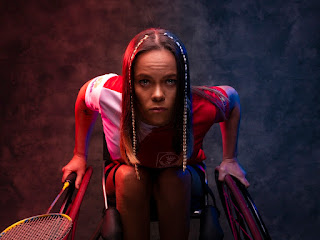Coaching Paralympic athletes is a rewarding yet distinctively challenging endeavor. These athletes demonstrate remarkable resilience, determination, and skill, and coaching them requires a deep understanding of their unique needs and abilities. In this article, we will explore the exceptional challenges and strategies involved in coaching Paralympic athletes across various sports.
Individualized Training Plans
One of the primary challenges in coaching Paralympic athletes is the diversity of disabilities. Paralympic athletes may have physical, visual, or intellectual impairments, each requiring tailored training plans. Coaches must conduct comprehensive assessments to understand an athlete's capabilities, limitations, and goals. These assessments serve as the foundation for developing individualized training programs that optimize their performance potential.
Adaptive Equipment and Techniques.
Coaches of Paralympic athletes must possess expertise in adaptive sports equipment and techniques. This includes knowledge of specialized equipment like prosthetic limbs, wheelchairs, and adaptive technology. Coaches adapt training methods to accommodate these tools while ensuring that athletes can perform at their best. They also help athletes fine-tune adaptive techniques for sports such as wheelchair basketball or seated shot put.
Mental Toughness and Resilience
Coaching Paralympic athletes involves more than physical training; it requires nurturing mental toughness and resilience. Many Paralympic athletes have overcome significant challenges to compete at the highest level. Coaches play a vital role in building their mental strength, teaching strategies to manage stress, and fostering a positive mindset that promotes peak performance.
Inclusivity and Accessibility
Creating an inclusive and accessible training environment is paramount for coaching Paralympic athletes. Coaches must ensure facilities and training resources are accessible for athletes with disabilities. This includes accommodating mobility devices, adapting workout spaces, and providing accessible transportation options to training venues.
Team Dynamics and Communication
In team sports like wheelchair rugby or blind football, effective communication and teamwork are essential. Coaches work on fostering a sense of unity among athletes, regardless of their disabilities. They teach strategies for effective communication on and off the field, emphasizing trust, coordination, and mutual support among team members.
Knowledge of Classification Systems
Understanding the classification systems used in Paralympic sports is fundamental for coaches. Athletes are classified based on their level of impairment to ensure fair competition. Coaches must be well-versed in these classification rules, as they directly impact athlete eligibility and strategic choices during competition.
Conclusion
Coaching Paralympic athletes requires a unique blend of adaptability, compassion, and expertise. These athletes continually inspire with their determination to overcome challenges and excel in their chosen sports. Coaches who embrace the distinctive challenges and strategies involved in coaching Paralympic athletes contribute not only to their success but also to the promotion of inclusivity and diversity in the world of sports.
Photo: Pixabay (free)

No comments:
Post a Comment
Thanks for your comment.